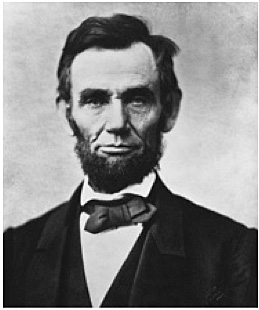
- General History, Random Notes
Slavery and the Civil War
With the recent commemoration of the 150th anniversary of the beginning of the Civil War, a number of journalists in their editorials (and even a historian, David Von Drehle, in a Time magazine article) attempted to assure us that they are setting the historic record straight — namely, that the paramount reason for the War Between the States (aka “The War of Northern Aggression” in the South) was racial hatred and slavery.
In a recent editorial in the Macon Telegraph, my local newspaper, John Parnell, writing for the editorial board of the newspaper claimed, “Most of us have heard from our youth on up that the origins of the war did not lie in slavery but in the South’s defense of states’ rights against the federal government.”(1)
Really? That is not the way most of us remember it! The primacy of slavery as the cause of the Civil War has been inculcated to school children from day one, and if you ask most people in the street, I am willing to bet, most teenagers and even adults, if they “know” anything about the Civil War will associate it with slavery, and if you mention states’ rights, chances are they will stare at you with a puzzled look, if not astonishment!

It was Christianity that brought European slavery to an end, not because of a specific biblical commandment but as a result of the Christian teaching that all men were brothers. Prior to the advent of Christianity, slavery was a worldwide institution, and it was actually an improvement over the previous condition of mankind, which was namely, immediate murdering of all men, women, and children, after the usual pillaging and plundering of villages and the storming of cities. (Women were frequently raped first and then likewise discarded, unless they were spared and taken as “wives” or concubines by the victorious raiders). Slavery was an acceptable substitute for mutilation and death after defeat in war or capture following hostile raids; that and the fact it became profitable are the reasons why slavery existed for hundreds of years.
States’ rights, the right of secession, slavery, particularly the enforcement of runaway slave laws in the West and the North, etc., were all important causes of the Civil War. But if there was one paramount cause of the war, perhaps, it would have to be the high protective tariffs the North wanted to impose on the South, repeatedly, to protect and expand its manufacturing and industrial might in competition with Europe, particularly France and England.
In fact, the South began to reconsider its economic position with the North at least since the imposition of “The Tariff of Abomination” of 1828 during the Presidency of John Quincy Adams. The imposition of high protective tariffs threatened not only southern cotton interests but also life in the South that depended on manufactured goods produced in and imported cheaper from Europe.(2)
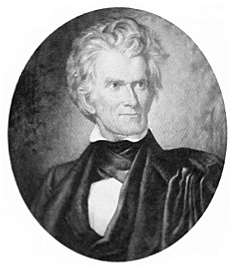
Almost forgotten is the fact even under President Andrew Jackson (1829–1837), South Carolina raised the specter of possible civil war, again over the revenue tariff of 1832, which was subsequently opposed by the theories of Nullification and State Interposition of U.S. Senator from South Carolina, John C. Calhoun (1782 –1850), political arguments leading to secession, derived from none others than Thomas Jefferson’s and James Madison’s Virginia and Kentucky Resolutions of 1798.
There could have been a civil war, without the theme of slavery, based on the unresolved issues of states’ rights, the right of secession, and the tariffs, if the North had continued to pass high protective tariffs to keep the agricultural South subservient to the industrial North.
When California joined the Union as a “free state,” tilting the balance of power in Congress, the fate of the country was sealed in favor of the North. John C. Calhoun on his deathbed succumbing to tuberculosis, warned the country of the political imbalance and the possibility of war; but within a few years those who took heed, the great champions of conciliation and the preservation of the Union — e.g., U.S. Senator from Kentucky, Henry Clay (1777-1852; “The Great Compromiser”), and U.S. Senator from Massachusetts, Daniel Webster (1782-1852) — had died, and their successor, U.S. Senator form Illinois, Stephen A. Douglas (1813-1861; “The Little Giant”), was in over his head. (Douglas himself, critically ill, died of typhoid fever just before the commencement of the Civil War in 1861.)
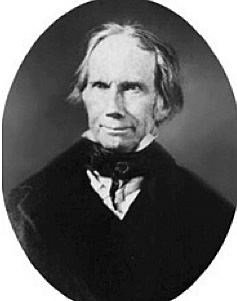
It should be remembered Sen. John C. Calhoun became the South’s champion over the issue of the tariffs (and not slavery) around 1828. Before that, he was a supporter of a strong central government with his young friends and political allies, war hawks: Henry Clay, Daniel Webster, and Andrew Jackson. But to remain the leading politician from South Carolina and for the South, he had to change his views, and first of all it was over the issue of the protective (manufacturing interest) tariffs way before 1860 or the Emancipation Proclamation of 1863!
Black slavery in the United States prior to 1865 has been discussed in the popular press, and even depicted in scholarly documentaries as if it was a unique event in the history of man. With the advent of Christianity and the wind of freedom heralded by the Age of the Enlightenment, slavery has rightfully been denounced as an evil institution. And yet, there was plenty of blame to go around. We know in plenty of details the sins of the Old South and the Confederate States of America, but also to come to terms with their own past, African-Americans must recognize the fact that native Africans sold their own people, their own brothers, into slavery.
Worth recapitulating, Europeans could hardly penetrate the hot tropical climate and jungles of the sub-Saharan part of Africa during the late 17th, 18th, and early 19th centuries, because of their susceptibility to heat, malarial fever, and other tropical diseases. Arab and African traders captured, bought, and sold Africans first hand, and then sold or bartered them to Europeans and other Arab middlemen traders for a profit. Islamic traffickers are still doing so today in places such as the Sudan and Central Africa!
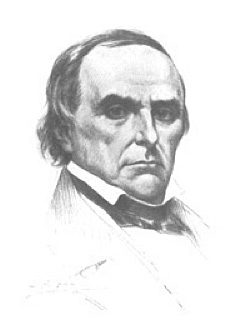
Additionally, they also need to remember the pesky fact that black Americans not only owned slaves in colonial America and in the U.S. before the Civil War, but also the equally troublesome fact the first legal slave owner in America was a black colonist, one of the original twenty blacks brought to Jamestown in 1619. Mr. Anthony Johnson of Virginia was that man. He took his former worker, another black indentured servant, to court, won his case, and secured the enslavement for life of Mr. John Casor, setting a legal precedent of black slavery in America as early as 1655, that would initiate, formulate, and establish the precedent of black slavery until the end of the Civil War.(3)
While many ardent abolitionists, such as William Lloyd Garrison and Frederick Douglas, were uncompromising when it came to the institution of slavery — the idea that the North was committed to a moral crusade to end slavery was hypocritical and untrue. Illinois and other northern states had passed racist laws prohibiting the settlement of free blacks in their states and many Union soldiers vehemently refused to serve in integrated units with black Americans.
What to do with freed black slaves was a problem that plagued both the North and South before the War Between the States. The Republic of Liberia on the west coast of Africa was established in 1821 by the American Colonization Society to resettle ex-slaves, but only a minuscule number of African-Americans wished to be sent back to Africa. Only 15,000 eventually settled there. Although many white citizens in the North wanted to free the slaves, when it came to allowing them to settle in their states, as we have seen, they balked, and several northern states did not welcome the freed men. The easiest solution would have been for the North to purchase the slaves and compensate the slave owners, but this did not happen. As Mr. Steve Scroggins, a very knowledgeable Civil War buff of the Georgia Heritage Council points out, “giving the slaves 40 acres and a mule would have been much cheaper than the cost of a war, not counting the human cost.”(4)
States’ rights, the right of secession, and slavery were all important contributing causes of the Civil War, but perhaps most important were the high revenue and protective tariffs that the North wanted to impose on the South repeatedly, not only to increase revenues for the federal government but even more apropos, to protect and expand its manufacturing and industrial might in competition with Europe, particularly France and England. The U.S. Congress led by northern politicians, who now had a decisive majority, passed and Lincoln signed ten tariff bills while in his presidency.
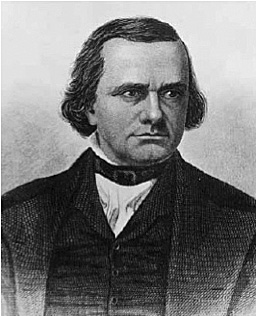
On March 2, 1861, Congress passed the Morrill Tariff that doubled duties on European imports, a tremendous hardship on the South. Two days later, in his first inaugural address on March 4, 1861 Lincoln announced that states had no right to secede from the Union and that it was his duty “to collect the duties and imposts” from the southern states. He also affirmed that he had no intention and no legal authority to interfere with the institution of slavery, and to reassure the South he expressed his support for the intended Corwin Amendment that would prohibit Congress from interfering with slavery, legislatively or constitutionally, where it already existed.
Just days before the Emancipation Proclamation, in the midst of the war, Lincoln extended his offer, once again — namely, that if the southern states would lay down their arms and return to the Union, slavery would be preserved where it already existed. But by then, southern secession had become the reason for continuing the war because, as John C. Calhoun had predicted, the South feared that its status in the U.S. would be subordinated to the interests of the industrialized and financially controlling North. One thing that Lincoln would not yield was his intention to collect duties on his tariff.
It is also evident that northern financiers recognized that the North had much to lose in commerce, if southern ports would remain open to foreign goods via free trade. Suddenly, by the end of 1860 and the beginning of 1861, the northern press aided by Republican propagandists began clamoring for war on the South. Thus, the heretofore call for “letting the South go in peace” ended.
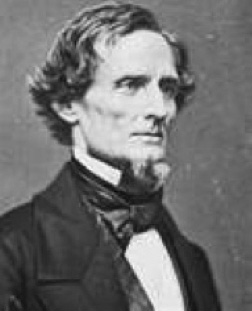
Protective tariffs were so abhorrent to the South that the President of the Confederacy, Jefferson Davis, in his February 18, 1861 inaugural address announced that the southern economy would be based on free trade, and the Constitution of the Confederacy that followed prohibited protective tariffs and permitted only the imposition of revenue tariffs that were absolutely necessary to run the central Confederate government.
On April 15, 1861, Lincoln called for the enlistment of 75,000 volunteers to invade the South, force the seceding southern states into reinstatement in the Union, and to force collection of the Morrill Tariff, which had just been passed two days earlier. The stage had been set for war. In his own inaugural address, Jefferson Davis had already asserted that the South would repel such an invasion.
When President Lincoln ordered a naval blockade of belligerent southern ports during the early months of the hostilities, he affirmed that the reason for the blockade was the need for tariff collection. Likewise, the stated congressional reason for the invasion of the South was to maintain the forts and property of the federal government for the purpose of collecting tariffs. These bellicose acts pushed Virginia, North Carolina, and Arkansas into the arms of the Confederacy.
On July 25, 1861, Congress passed the Crittenden-Johnson Resolution, a proposal stating explicitly that the reason for the invasion of the South was to “preserve the union” and “not to interfere with the domestic institutions of the states,” referring, of course, to slavery.(2)
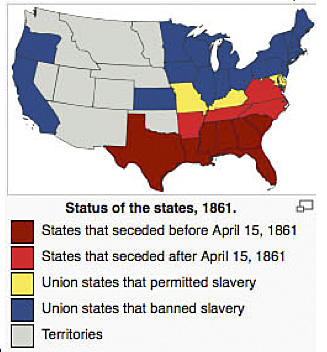
That slavery was not the sole underlying reason for the war is also evident in the fact during the war, four slave states remained in the Union (i.e., Delaware, Maryland, Kentucky, and Missouri, and another slave state (i.e., West Virginia carved out of the Old Dominion) was admitted to the Union in 1863.
And it goes without saying, if Lincoln had not ordered the invasion of the South, there would probably not have been a War Between the States. War would inevitably follow invasion. The South had to act in self-defense. Moreover, once hostilities started, if the Confederacy had freed all the slaves, the war would not have ended. And the war would not necessarily have been avoided, if slavery had been the only conflict between the two regions; there were the sticky issues of contention: states’ rights, and more ominously as we have seen, the right of secession, arising out of imbalance of trade and the imposition of imposts and protective tariffs.
And we must remember that the Emancipation Proclamation freed only the slaves of the rebellious states, not those in the northern and western states, or the U.S. territories. Those slaves in the Confederate States, who had been “freed,” had to wait until they were liberated by the conquering Union armies. Black slaves in the loyal states or U.S. territories had to wait for another eight months after the end of the war to gain their freedom because slavery remained legal in the U.S. until the end of 1865.
According to the 9th and 10th Amendment to the U.S. Constitution (i.e., parts of the Bill of Rights), since secession is not prohibited by the Constitution to the states, it is a right reserved to the people, or respectively, to the states. While I am not saying that secession and separation would have been ultimately beneficial to either the North or the South, I do question Lincoln’s assertion that secession was illegal, and that the war and the bloodshed that followed were absolutely necessary and could not be avoided.
What was the death toll in a civil war that could have possibly been avoided? The American Civil War took a heavy toll not only economically with the devastation of the South, but also 750,000 young soldiers perished, according to Binghamton University historian J. David Hacker. Moreover, in another study the Historian John Huddleston estimated the death toll at “ten percent of all Northern males 20–45 years old, and 30 percent of all Southern white males aged 18–40.” Neither of these estimates mention an as yet undetermined number of civilians casualties, mostly in the South. In short, the Civil War exacted the bloodiest and greatest toll of American lives in U.S. history, and by some estimates even surpassing those of World War I and World War II combined!(5)(6)
Most of Latin America, former colonies of Spain and Portugal, had black slavery in the 18th and 19th centuries, and not one of those countries required a sanguinary civil war to abolish the hated institution. Although in Cuba an unsuccessful war for independence had been fought between 1866 and 1876, the island abolished slavery peacefully in 1886. Brazil the largest country in South America with a large black and mixed-race population ended slavery in 1888 — and also without a war. Latin America has had its share of problems (i.e., revolutions, poverty, even communist dictatorships) but one issue in which it has perhaps surpassed America is in the issue of race relations. And one lesson we should learn from our Latin neighbors is that genuine conciliation and healing are gained, not by government fiat or by constantly reopening old wounds, but by living together and moving on!
Read also Fighting Lost Causes in the American Civil War (December 7, 2014)
References and Sources
1) Parnell, John. The South should be honest about Civil War, the Macon Telegraph, April 15, 2011.
2) Blum, JM, Catton, B, Morgan, E.S., et. al., A History of the United States — the National Experience, 2nd ed., Harcourt, Brace, & World, Inc., New York, 1968, p. 225-369.
3) The Story of John Casor.
4) Scroggins S. Lincoln Mythology is Born — Commentary. March 4, 2011.
5) Gugliotta Guy. New Estimate Raises Civil War Death Toll. The New York Times, April 3, 2012, p. D1 (of the New York edition), and April 2, 2012 on NYTimes.com.
6) American Civil War entry, Wikipedia, Jan 24, 2014
Written by Dr. Miguel Faria
This article was published exclusively for HaciendaPublishing.com on July 25, 2011. Edited, January 30, 2014. The article can be cited as: Faria MA. Slavery and the Civil War. HaciendaPublishing.com, July 25, 2011. Available from: https://haciendapublishing.com/slavery-and-the-civil-war/
Copyright ©2011 Miguel A. Faria, Jr., M.D.